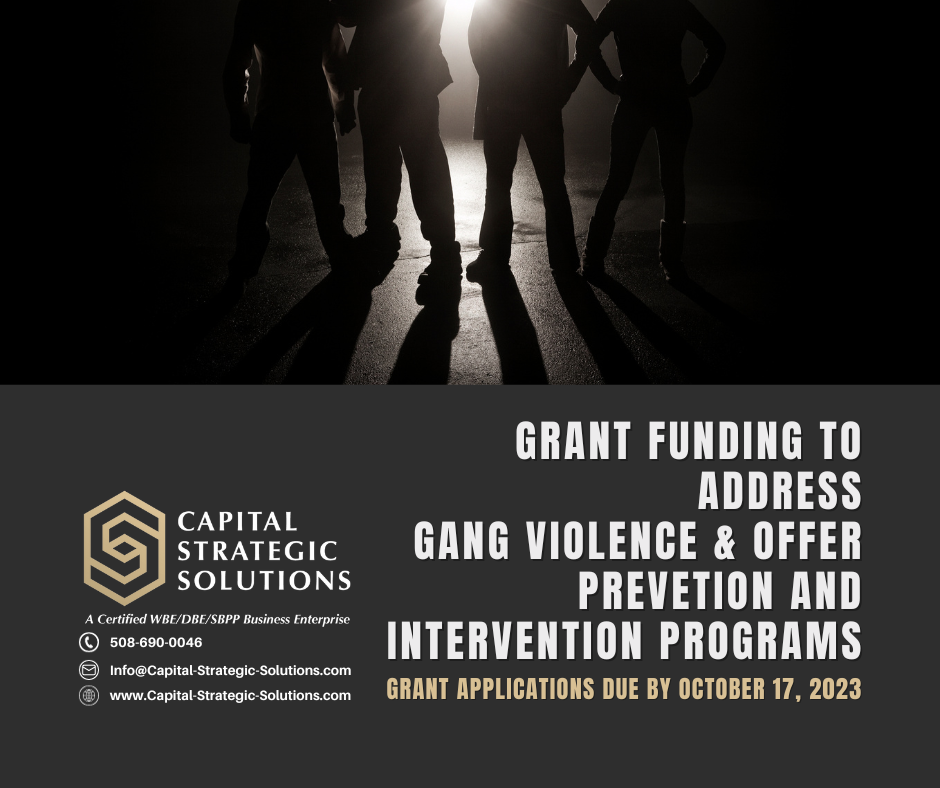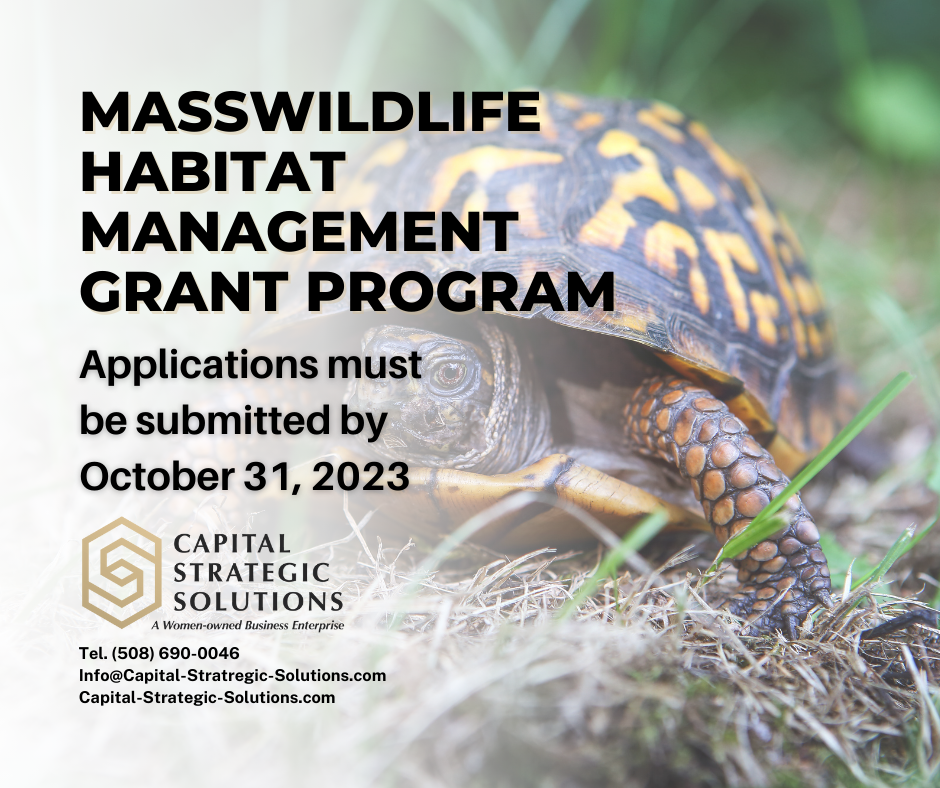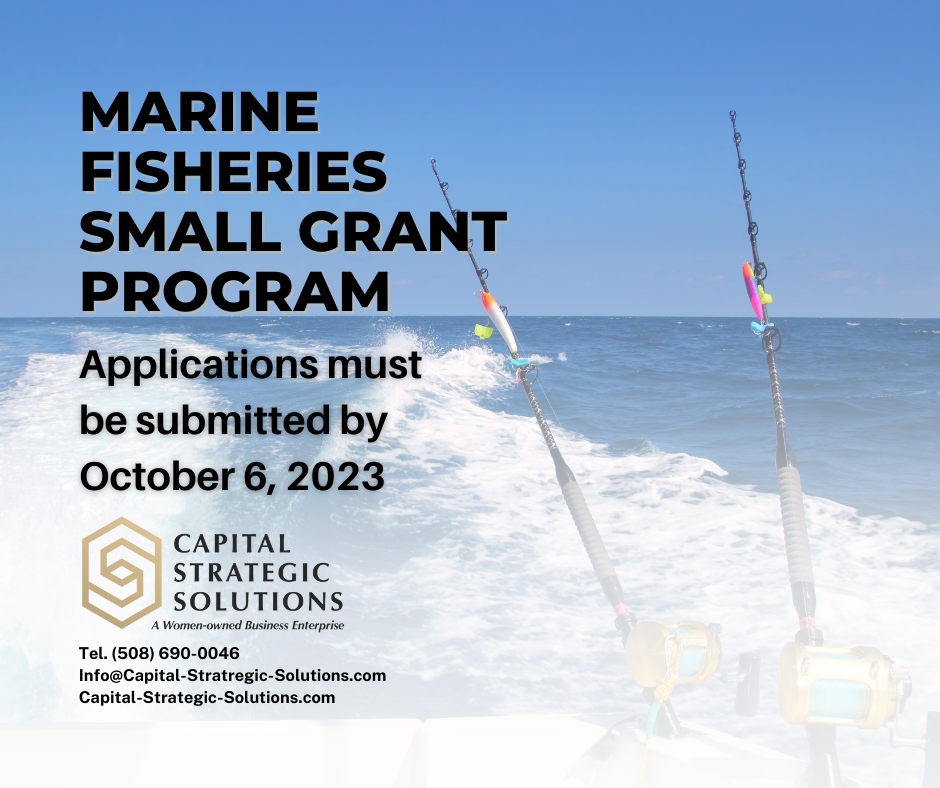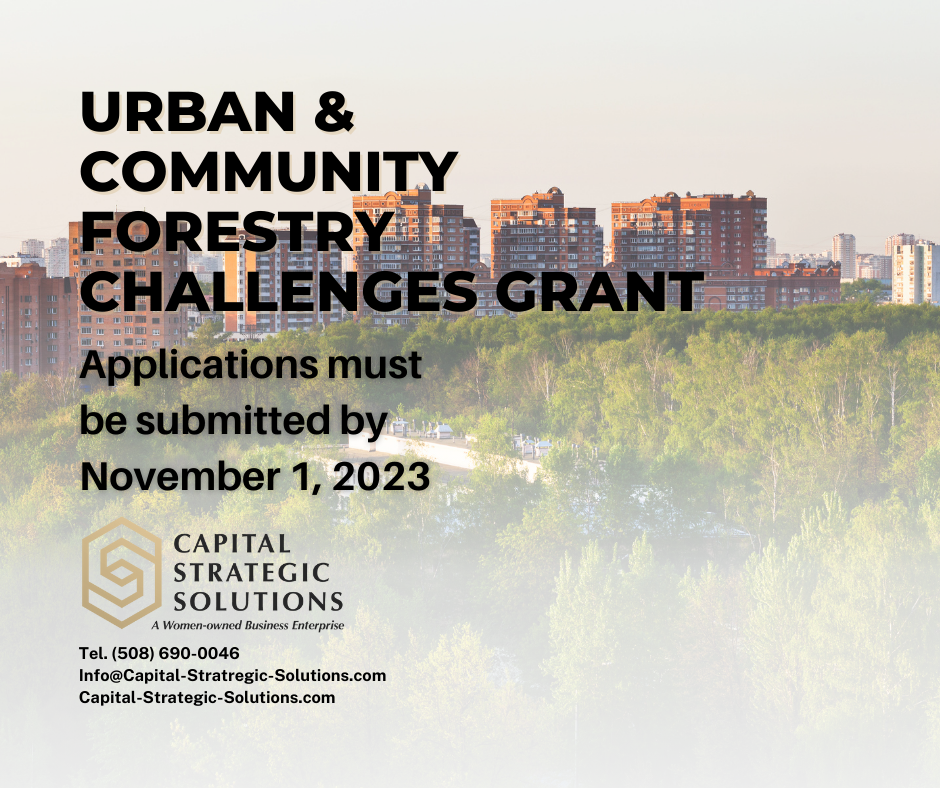
Again, this year the State has announced $10.8 million in funding for the Shannon CSI grant program. The purpose of the program is to support regional & multi-disciplinary approaches to combat gang violence through coordinated prevention and intervention, law enforcement, prosecution & reintegration programs for youth between 10 – 24 years of age. The State strongly encourages collaborative efforts within a community or region, and preference will be given to applications that propose working with multi-disciplinary partners & commitment to regional strategies, target geographical locations which have high levels of gang violence, provide a 25% match to awarded grant funds, and identify the community serving as the grant fiscal agent. Awardees will need to maintain a steering committee, have a site program director, and contribute crime data to various agencies. Grant applications are due by October 17th at 4 PM, with a grant period anticipated of January – December 2024.

The State has released a grant to assist municipal and private property owners with conserved lands (Conservation restriction/easement, agricultural restriction, Chapter 61, 61 A/B, land under the care of a municipal conservation commission, etc.) to conduct work to enhance habitats for native wildlife species, especially climate vulnerable habitats to make them more resilient to climate change, and to promote public access for wildlife associated recreational opportunities. The specific priorities for this program are to improve habitat(s) for species that can be legally hunted, fished and trapped in the state, enhance habitat in ecological communities disproportionally susceptible to climate change, and manage habitats for species of greatest conservation need as identified in the State’s wildlife action plan from 2015.
Applicants are eligible for grants between $10,000 – $75,000 with no grant match required. The State anticipates that projects will take approximately six months to complete and must be finished by June 30, 2024. Some examples of allowable expenses include mowing, tree clearing, control of invasive plants, fencing, tree planting, pond/shoreline restoration, staff time for on the ground project implementation (base salary only), materials, signs, equipment rental. Applications must be submitted electronically by October 31, 2023 at 5:00 PM.

For the 11th year in a row, the State has released this grant again to enhance recreational saltwater fishing opportunities through improved public access. This grant is open to all municipalities that have waters requiring a Massachusetts saltwater fishing license. Winning proposals will receive technical assistance from Marine Fisheries staff, technical services or direct funding. The criteria for a winning proposal include improvement to existing access, creating new fishing access, and/or provide an educational service that enhances fishing opportunities. The grant limit is $25,000 per project and the closing date for this grant is October 6, 2023.

Urban and Community Forestry grant funds are provided by the USDA Forest Service and administered by DCR with guidance from the Massachusetts Tree Wardens’ and Foresters’ Association. The program assists communities and nonprofit groups in their efforts to protect and manage community trees and forest ecosystems, with the ultimate aim of improving the environment and enhancing livability of all of Massachusetts’ communities. These 50-50 matching grants (75% – 25% for environmental justice communities) will provide grants from $1,000 – $40,000 seeks to make sustained improvements in local capacity for excellent urban & community forestry management in six key areas: community wood banks, developing adopting tree & forest ordinances and policies, securing or training professional staff, developing & implementing systematic urban forest management, completing strategic tree plantings, and other projects that result in sustained improvements to urban & community forestry management.
Communities who are interested in applying must first submit an “Intent to Apply Form” at least one month before formal applications are due (November 1, 2023). Final applications must include a letter from the community’s tree warden indicating their involvement with the project, and all funded projects must be completed within one year, with funding provided on a reimbursement basis.

